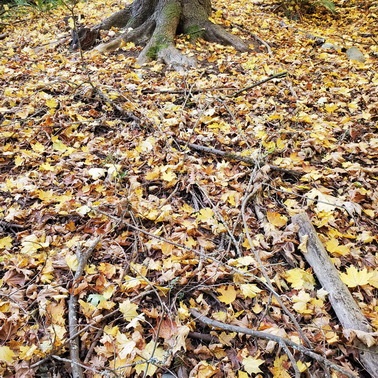I’ve been working on a blog about humus for several weeks (not the chickpea paste spelled with two “ems” but the “mysterious elixir” in soil). What I learned, to my surprise, was that humus probably never existed in the first place but was more likely just a product of the method used to study it.
The Traditional Views of Humus
For decades, the prevailing view held that humus was the result of a special humification process that resulted in extremely large, stable organic molecules. Compared to composting, which breaks down organic material into simpler molecules, the humification process supposedly did the opposite — created molecules that were so large and complex that no two were ever alike. This “snowflake” quality of humus contributed to its mystery. Yet despite the fact that scientists didn’t quite understand what humus was or how it was formed, they agreed that it provided many benefits to soil including:
- helping to give productive topsoil a stable physical structure associated with high fertility,
- helping make nutrients more available to plants, and
- helping light soils hold more water and heavy soils hold less water.
However, since it was first described 200 years ago, scientists had never actually been able to study humus while it was still in soil. Since each molecule was unique the usual methods of organic chemistry would not work. Instead, scientists poured strong alkaline solutions through soil thinking that they were extracting a substance they called humus when in fact they were probably creating it.
Goodbye Humus
The new theory of complex organic molecules in soil is more cyclical — some are simply plant litter that has not yet fully decomposed, but some are created anew by biota in the soil through the same kinds of life processes as the plants creating the litter falling from above. These molecules in soil are still complex, just not quite as complex as those that precipitated out of alkaline saturated soil.
For backyard forest restoration, ending the myth of humus doesn’t really change anything except the likelihood of eliminating the word from our discussions of soil. And it certainly doesn’t change the fact that composting is good, organic material is good, disturbing the soil is not good, and erosion is bad. But goodbye humus.
